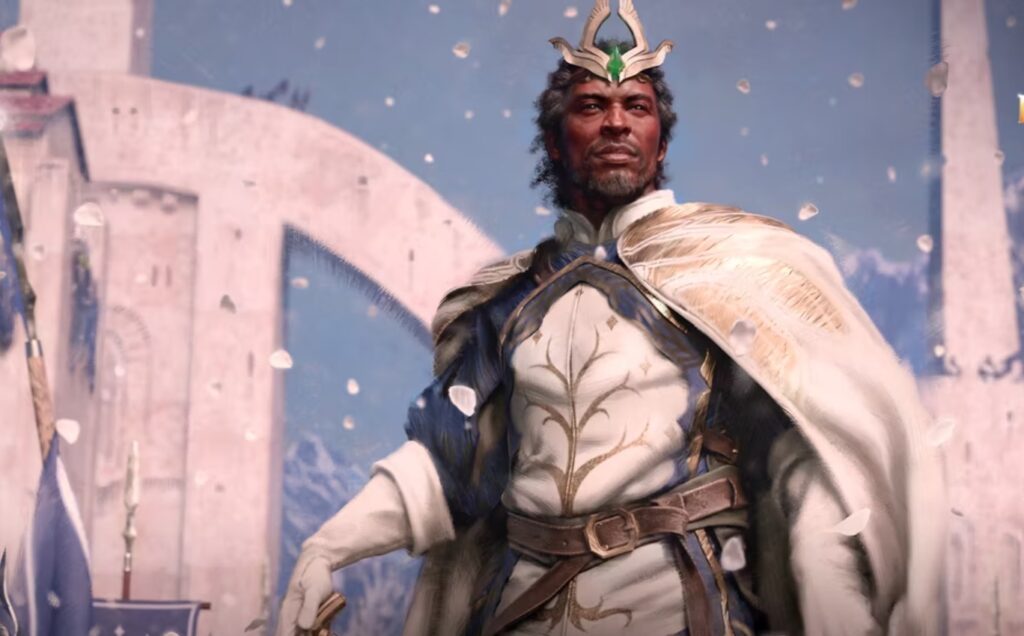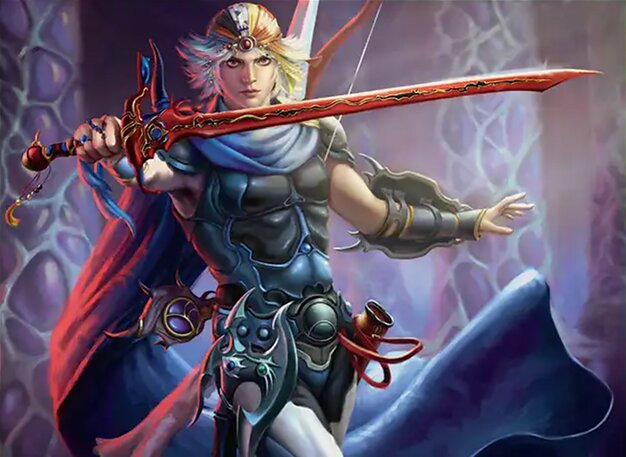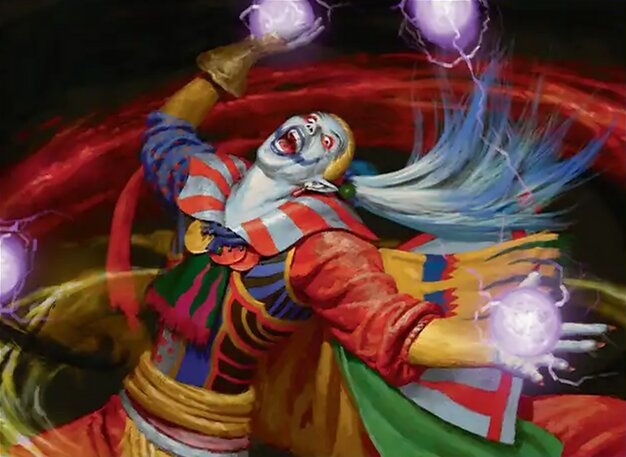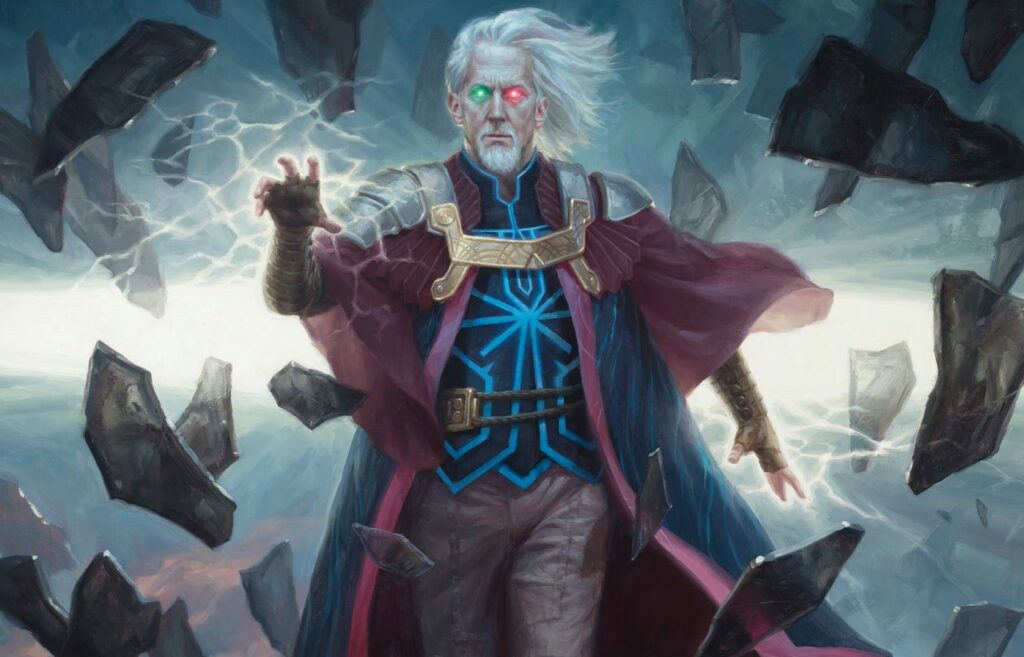According to low-end estimates, the No Kings protests across the United States on June 14th attracted at least five million participants. The goal of the protests is to bring about a peaceful end to the Trump administration and the impending fascist rule the regime is working night and day to bring to America, ending an almost 250-year experiment in representative democracy. The protests were dubbed “No Kings” to contrast the current president’s desire to be treated like a King.
The United States of America is ruled by a document known as the Constitution. The framers of said document, the founders of said nation, and the men and women who bled and died during the American Revolution did so for the very specific ideal that they would no longer live under the rule of kings and queens.

Aragorn, King of Gondor, art by Yongjae Choi; Remember when a non-white Aragorn made a bunch of people angry? Hah! Those were the days.
In Magic there is a Monarch. It’s a token you can get that gives you one ability. At the end of your turn you draw a card. The token itself has another ability which says that if anyone else deals combat damage to you, they become the Monarch (and they get the token). It’s a very flavorful mechanic that immediately turns Commander games into a Game of Thrones as everyone starts to play politics for the Monarchy. But does anyone stop to think about the damage they’re causing to the people they rule over as they send them into battle, burn through their resources, and bathe their fields in blood all for an extra card draw at the end of each turn?
While Magic has always been a game about conflict it hasn’t always been a game about monarchy, but Final Fantasy, especially through the lens of the 16 main-series games, has always been a game about monarchs/emperors/oligarchs, and the suffering they cause (and are mostly ignorant of), and the rebellions they spawn as a result.
I – The original Final Fantasy game begins with the player being set forth on a quest by the King to rescue his daughter, Princess Sarah. Opposing them is Garland, Knight of Cornelia, who fashions himself to be ruler of the world.
II – The sequel delves deeper into the relationship between Empires and Rebellions as we follow Firion, Wild Rose Warrior, leader of the Wild Rose Rebellion, in his quest for vengeance against the Emperor of Palamecia who has summoned monsters from hell to rule the world.

Firion, Wild Rose Warrior, art by Elizabeth Peiró
Do you think Vladimir Putin would open a portal to hell and release a horde of monsters to wreak havoc on the world in order to install himself as global dictator? How do you think the media would spin it and how do you think they would blame it on Joe Biden?
III – Final Fantasy III introduced the job system (gotta keep the working class down, right?) and follows generic unnamed characters known as the Onion Knights who are tasked by the Wind Crystal to save the world. Their quest is interrupted by a monarchy-driven civil war but they eventually confront Xande, Dark Mage.
IV – We revisit some of the themes of Final Fantasy II as our protagonist, Cecil, Dark Knight, captain of the Red Wings of Baron, becomes distrustful of the King of Baron who orders the Red Wings to attack the wizard town Mysidia and and steal the Water Crystal.
What’s that? A King decides to send his elite forces into a foreign nation to steal their resources? I bet those wizards were on the verge of developing a nuclear fireball spell.
V – Bartz and Boko get caught up in the conflict between various kingdoms as he tries to save the world. Similar to the third installment, the monarchy isn’t the main antagonist (that would be Exdeath, Void Warlock, a great name for a villain) but their existence and the conflicts/whims of monarchs drive our hero’s journey.
VI – Final Fantasy VI is a very complicated game, and ultimately the antagonist is the insane Kefka, Court Mage. However, the game does spend a lot of time on the evils of imperial rule as the game opens with a raid on a neutral village to steal an “esper.”

Kefka, Dancing Mad, by Anton Solovianchyk
If you haven’t figured out by now that the recurring theme, and the reason why the No Kings protests are so important, is that if allowed to exist, any monarchy/empire/dictator/oligarchy will start attacking foreign lands for their resources, especially if those resources can become weapons of war. If you haven’t figured that out yet, there’s TEN MORE GAMES to go through.
I won’t go through all the games, but the themes remain the same except for Final Fantasy XV, which is more about a journey where a prince learns what it means to be king but the game still deals heavily with the conflicts of war and the suffering of the people.
I don’t want to spoil the endings, but since these are video games you can probably guess that most of the evil empires/monarchs don’t survive to the end. Despite the name of the series, this isn’t fantasy, it is quite often reality. Among the many monarchies/empires to have once existed in our world, most ended in violent revolution. The ones that did not, such as the United Kingdom and Japan, transitioned to democratic rule mostly due to the results of imperialism/war.
Magic’s oldest story, while framed around the conflict of two passionate and gifted siblings, is also the story of war, and suffering, and the end of two monarchies. While Urza Planeswalker wasn’t the King, he was married to the Queen of Argive, Kayla bin-Kroog. Mishra, on the other side of this coin, served the Qadir of the Falajji, an emperor of the tribes, whose son succeeded him as Qadir after a mechanical dragon killed his father. Both Argive and the Falajji were destroyed by the Brothers’ War and the lasting effects it had on Dominaria.

Urza Planeswalker, art by Ryan Pancoast
Our culture is a culture of storytelling. One of the reasons Magic: the Gathering is so appealing to so many people is because of the storytelling. When the story resonates, the game play itself resonates. This enhances the experience but also reinforces the story and reinforces the lessons the story is trying to teach us.
The Monarch teaches us a very valuable lesson, and not just through the fate of Brago, King Eternal. The Monarch teaches us that the very existence of monarchy leads to heightened conflict. That the Monarch will go to great lengths to protect their position. And that everyone suffers as a result.
It’s okay to have the Monarch in your Commander pod. It’s not okay to have monarchs in the real world.
Rich Stein (He/Him) has been playing Magic since the Clinton administration. He is an unapologetic socialist who thinks Magic should be accessible to everyone regardless of income bracket. This weekly column is dedicated to the crossroads of our dire global political climate and our favorite international trading card game community.

